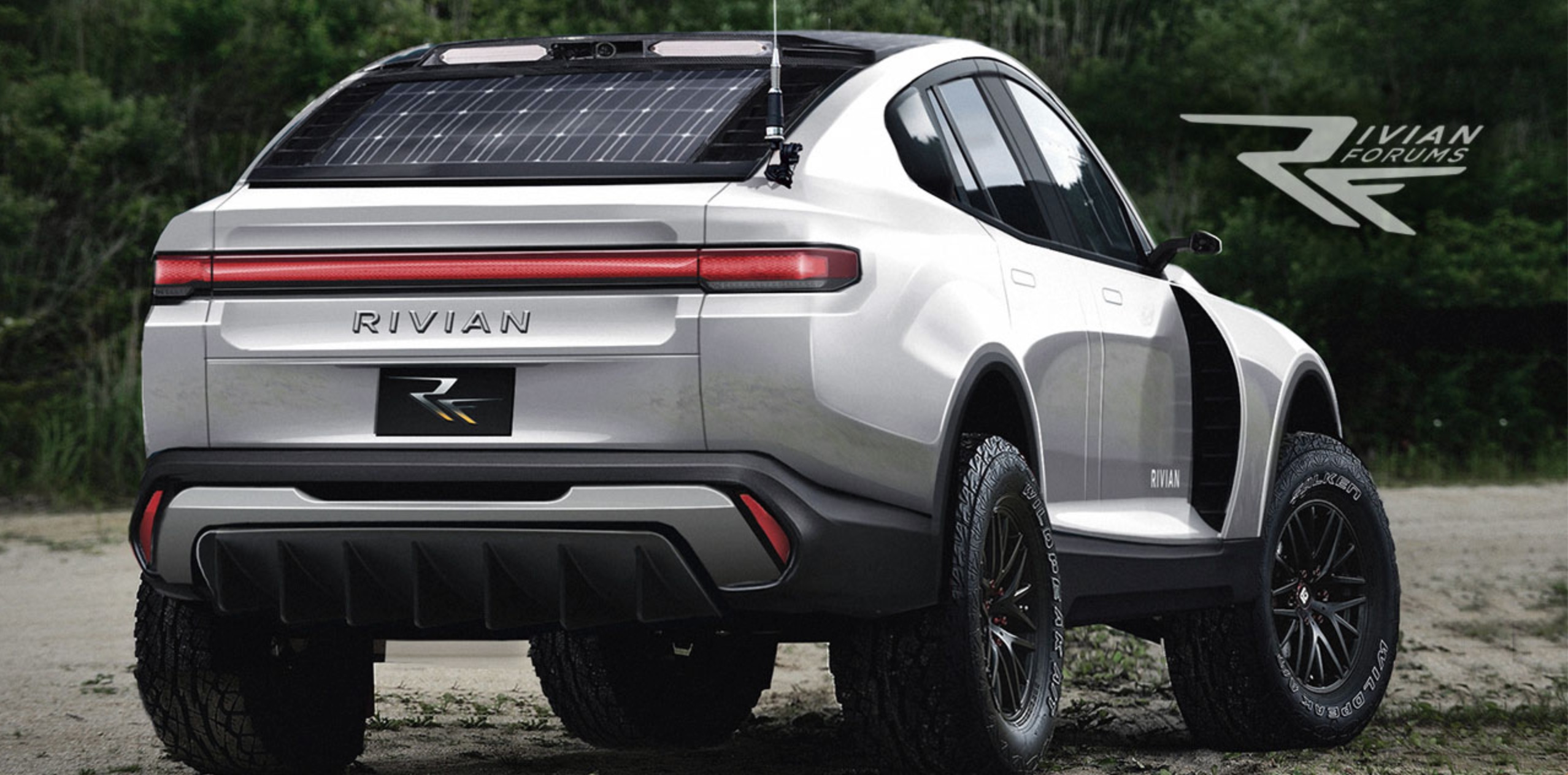Is Rivian's Meteoric Rise Sustainable? Experts Weigh In On The Electric Vehicle Stock's Future
Rivian, the electric vehicle manufacturer that has taken the world by storm, has left many investors and analysts wondering: is its meteoric rise sustainable? With its stock price skyrocketing and valuations soaring, the company's future looks bright, but its ability to maintain this momentum is far from certain. In this article, we'll delve into the world of electric vehicles, explore Rivian's growth strategy, and gather expert opinions on the company's sustainability.
The electric vehicle (EV) market has been rapidly expanding in recent years, with many players vying for a share of the lucrative market. Rivian, founded in 2009 by R.J. Scaringe, has been at the forefront of this expansion, and its R1T electric pickup truck and R1S electric SUV have garnered significant attention. The company's unique approach to electric vehicle design, with a focus on range, performance, and sustainability, has resonated with consumers and investors alike.
One of the key factors contributing to Rivian's success is its focus on customer experience. The company's manufacturing facility in Normal, Illinois, employs over 4,000 people, and its sales team has been praised for its dedication to customer service. This approach has resulted in a loyal customer base, with many customers returning for their next vehicle.
However, as with any company experiencing rapid growth, sustainability is a major concern. Rivian's production capacity has been a challenge, with the company struggling to meet demand for its electric vehicles. This has led to delays and cancellations, which may impact the company's reputation and customer satisfaction.
Industry Trends: The Electric Vehicle Market's Evolution
The electric vehicle market is rapidly evolving, with new players entering the scene and existing players investing heavily in research and development. The trend towards sustainable energy sources is driving the growth of the EV market, with many governments and companies investing in infrastructure and incentives to encourage adoption.
Some of the key trends shaping the EV market include:
• Increased Range and Efficiency: Advances in battery technology have resulted in increased range and efficiency for electric vehicles, making them a more viable option for consumers.
• Improved Charging Infrastructure: The development of fast-charging technology and the expansion of public charging stations are making it easier for consumers to own and operate electric vehicles.
• Growing Demand for Electric Vehicles: The growing demand for electric vehicles is driving innovation and investment in the industry, with many companies vying for a share of the market.
Expert Opinions: Rivian's Growth Strategy and Sustainability
We spoke with several experts in the industry to gather their insights on Rivian's growth strategy and sustainability.
"I believe Rivian's success is due to its unique approach to electric vehicle design and its focus on customer experience," said John Moore, a clean energy expert at the University of California, Berkeley. "However, its sustainability is a concern, particularly given its production capacity and supply chain management."
"This is a classic case of the 'valley of death' problem," said Rachel Roberts, a sustainability expert at the University of Oxford. "Rivian's growth has been fueled by venture capital, but it needs to demonstrate profitability and sustainability to convince investors and customers."
"I think Rivian's biggest challenge is its reliance on venture capital funding," said James Frost, a clean energy expert at the University of Michigan. "As the company grows, it needs to find a way to sustain itself without relying on external funding, which can be volatile and unpredictable."
Case Study: Rivian's Production Capacity and Sustainability
Rivian's production capacity has been a challenge, with the company struggling to meet demand for its electric vehicles. This has led to delays and cancellations, which may impact the company's reputation and customer satisfaction.
Some of the key factors contributing to Rivian's production capacity challenges include:
• Manufacturing Delays: Delays in manufacturing have resulted in a shortage of vehicles, leading to cancellations and disappointed customers.
• Supply Chain Management: Rivian's reliance on a single supplier for its batteries has raised concerns about supply chain management and sustainability.
• Labor and Workforce Development: The company's large workforce requires specialized labor and training, which can be costly and time-consuming to develop.
Mitigating the Risks: Rivian's Sustainability Initiatives
Rivian has implemented several sustainability initiatives to mitigate the risks associated with its production capacity and growth. Some of these initiatives include:
• Sustainable Manufacturing Practices: Rivian has implemented sustainable manufacturing practices, including the use of renewable energy sources and waste reduction initiatives.
• Supply Chain Optimization: The company has optimized its supply chain management, including the development of partnerships with multiple suppliers and the use of technology to improve efficiency.
• Workforce Development: Rivian has invested in workforce development programs, including training and education initiatives to develop the skills of its employees.
Conclusion
Rivian's meteoric rise has left many investors and analysts wondering: is its sustainability sustainable? While the company's focus on customer experience and unique approach to electric vehicle design have contributed to its success, its production capacity challenges and reliance on venture capital funding raise concerns about its long-term viability.
However, Rivian's sustainability initiatives and commitment to innovation suggest that the company is taking steps to mitigate the risks associated with its growth. As the electric vehicle market continues to evolve, Rivian's ability to adapt and innovate will be crucial to its success.
Some of the key takeaways from this article include:
• Sustainability is key: Rivian's sustainability initiatives and commitment to innovation are crucial to its long-term viability.
• Production capacity challenges: Rivian's production capacity challenges, including manufacturing delays and supply chain management, are significant concerns.
• Electric vehicle market trends: The electric vehicle market is rapidly evolving, with increasing demand for range and efficiency, and improved
Connieenio Case Pos
Who Is Rick Ross
Karlan And Connieenio Crime Pos
Article Recommendations
- Google Places Rank Checker
- Brooke Monkd
- Paige Vanzant
- Aishah
- Sondra Blust Fans
- Abby Phillipalary
- Jackoherty Girlfriend
- Idol
- Nia Peeples
- Jackson Brundage Medical Condition


_1662218037971_1662218045122_1662218045122.jpg)
